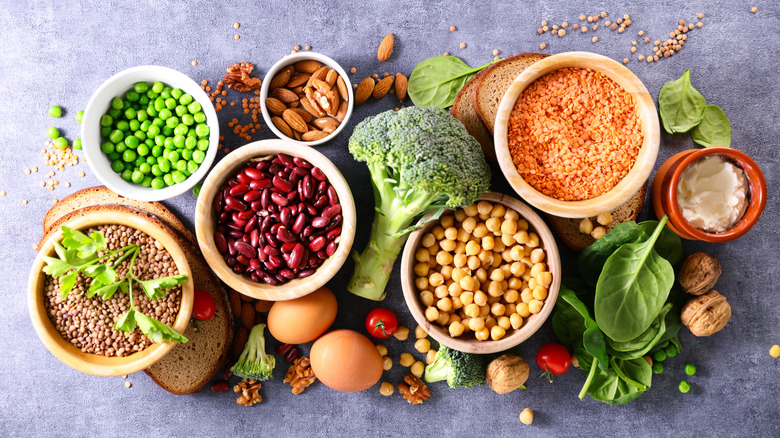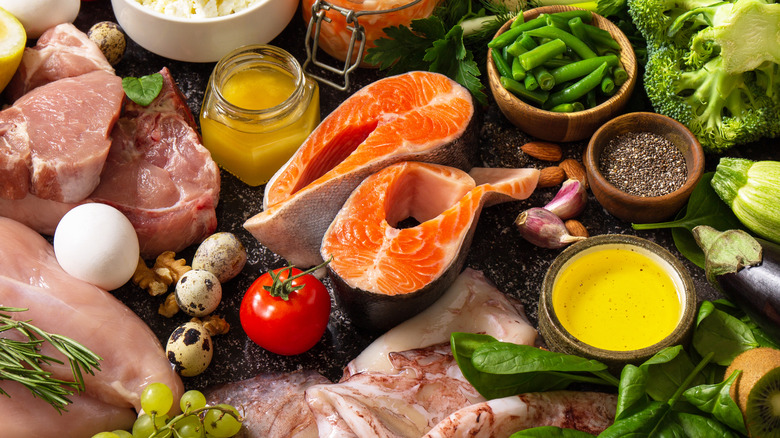High-Protein Snacks You're Sure To Enjoy, According To An RD
We may receive a commission on purchases made from links.
We all know that protein is an important part of a nutritious diet, but we might not realize just how crucial it is. The Mayo Clinic reports that protein provides amino acids which are important for repairing and building muscle, but did you also know it also has an influence on brain health? A 1992 study linked a lack of protein in the diet to decreased dopamine levels, and Medical News Today says that this chemical plays a role in how well you can concentrate, learn, remember things, and sleep. A lack of dopamine can lead to such symptoms as "cold hands and feet," feeling tired, or experiencing "brain fog."
While protein is a key factor in our overall health, it can be difficult to add to your diet if you don't know what to look for, especially when you don't want to drastically increase your calorie consumption. The Mayo Clinic says that the average person should be aiming for 0.36 grams per pound of body weight (0.8 grams per kg) and very active people should aim for more. So, what are some enjoyable choices that could help people achieve that? Mashed spoke with dietitian Trish Best, MPH, RD, LD, to get some expert tips on ways to add high-protein snacks into your diet.
Protein and fiber can be a winning combo
Avoiding excess is important when it comes to high-protein snacks, Trish Best told Mashed. Eating too much protein can "place a strain on the kidneys, and the body can really only handle about 20 grams at a time and the rest is wasted." Therefore, she recommended looking for snacks that have around 5 to 10 grams each. Best also pointed out that not only is protein important for "muscle health" and "cellular health," but it increases how satiated you feel. On top of that, it "raises the body's metabolism by increasing the body's temperature during digestion."
Best suggested that when reaching for a snack between meals, you can swap out less-nutritious options for alternatives such as boiled eggs or cheese sticks. The dietitian said that "it isn't as important to find a balance between carbs, fat, and protein, but fat should be the lowest of the three. If possible, dietary fiber should make up at least 2 grams of your carb count." She called hummus "an excellent source of plant protein." Six tablespoons (a little over ⅓ cup) of Sabra Classic Hummus, for instance, provide 6 grams of protein, 6 grams of fiber, and zero sugars (via Amazon). Combining it with veggies can give you even more fiber.
For a little more fun and variety, try things like almonds and banana chips wrapped in cheese slices, cottage cheese with salt and tomatoes, turkey-wrapped apple slices, and chia pudding with pears and cinnamon.

